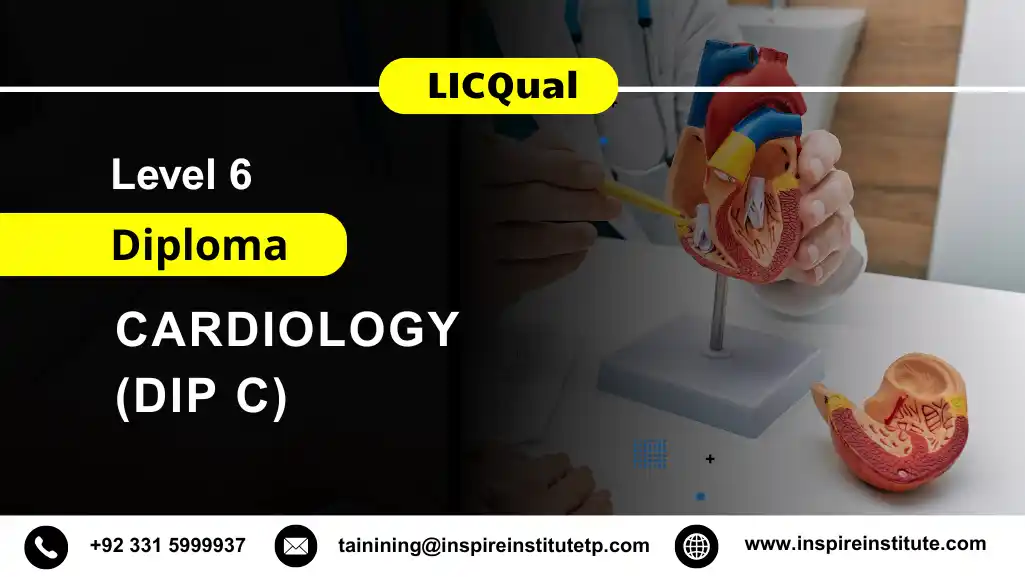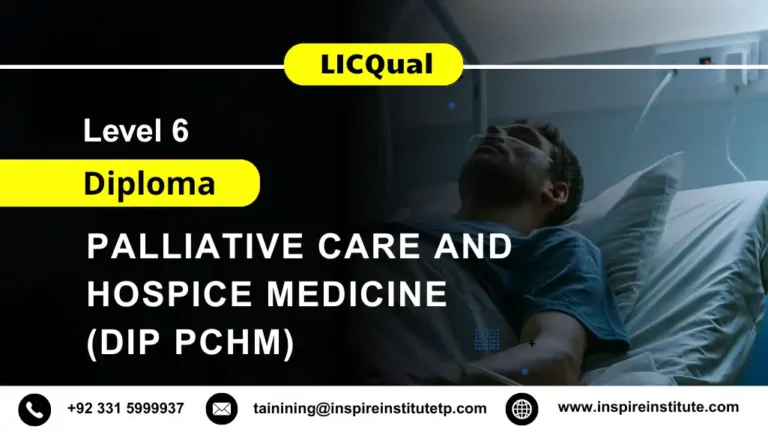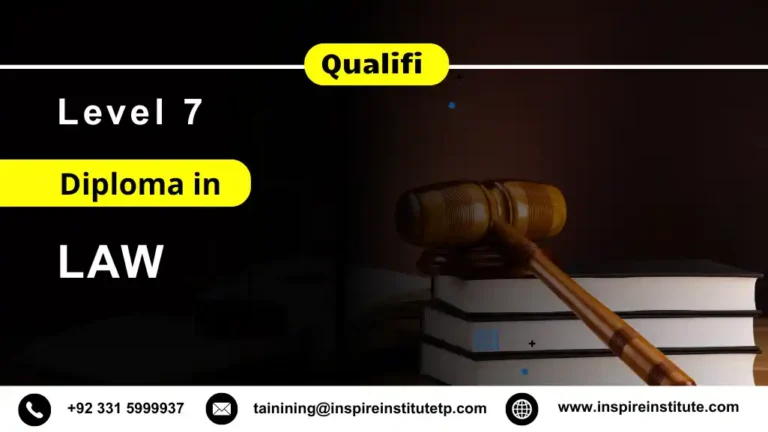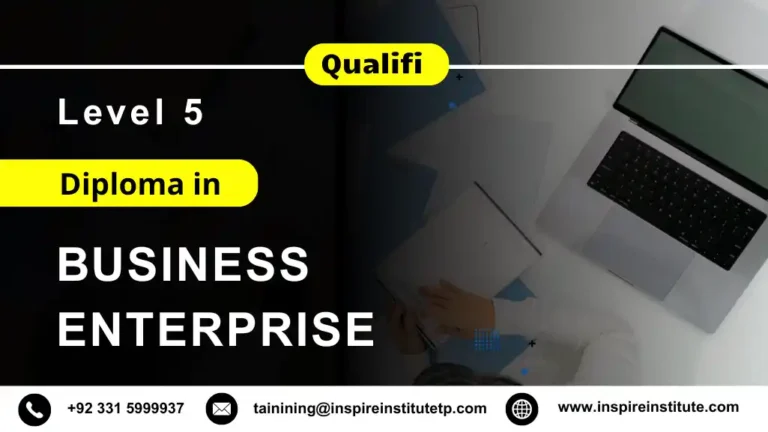LICQual Level 6 Diploma in Cardiology (Dip C)
The LICQual Level 6 Diploma in Cardiology (Dip C) is an advanced, UK-accredited qualification designed for healthcare professionals and medical practitioners aspiring to specialize in cardiovascular health and disease management. As cardiovascular diseases remain one of the leading global causes of mortality, this Cardiology Diploma offers in-depth clinical and theoretical training to equip learners with the expertise needed to diagnose, manage, and prevent cardiac conditions effectively.
This advanced cardiology course focuses on developing a strong understanding of cardiac anatomy, physiology, and pathology. Learners will explore core topics including ischemic heart disease, arrhythmias, hypertension, heart failure, and preventive cardiology. The programme integrates evidence-based medicine with practical case studies, helping learners to apply theoretical knowledge to real-world clinical situations confidently and accurately.
This clinical cardiology training also introduces learners to preventive healthcare strategies, cardiac rehabilitation, and lifestyle interventions to manage chronic cardiovascular conditions. Learners will gain the competence to contribute effectively to multidisciplinary teams and deliver patient-centered care that aligns with international clinical standards.
Why Choose this Qualification
The LICQual Level 6 Diploma in Cardiology (Dip C) is a prestigious, UK-accredited qualification tailored for healthcare professionals, nurses, and medical practitioners aiming to advance their clinical expertise in cardiovascular care. Choosing this Cardiology Diploma means investing in a course that bridges scientific theory with practical, patient-centered cardiology practice. The program prepares learners to meet international clinical standards while gaining in-depth knowledge and hands-on skills essential for modern cardiovascular healthcare.
Key Reasons to Choose this Qualification
Specialist Clinical Knowledge
- Gain a comprehensive understanding of cardiac anatomy, physiology, and pathology.
- Learn about major cardiovascular conditions such as coronary artery disease, arrhythmias, and heart failure.
- Study diagnostic tools including ECG, echocardiography, stress testing, and cardiac imaging.
- Develop knowledge of pharmacological and interventional management techniques.
- Understand the pathophysiological mechanisms underlying acute and chronic cardiac disorders.
Practical Application of Cardiology Concepts
- Acquire hands-on skills in performing and interpreting cardiac diagnostic procedures.
- Learn to assess risk factors and manage cardiovascular emergencies effectively.
- Gain practical experience in developing and implementing patient-centered treatment plans.
- Apply clinical theories to real-world cardiology case studies and scenarios.
- Enhance clinical confidence in diagnosing and managing complex cardiac conditions.
Recognised and UK-Accredited Qualification
- Earn a globally recognized Cardiology Qualification endorsed by LICQual.
- Strengthen your professional credibility within hospitals, clinics, and cardiac care centers.
- Demonstrate measurable competencies aligned with international cardiology standards.
- Enhance your eligibility for career progression or postgraduate medical study.
- Gain a qualification respected across healthcare systems and regulatory frameworks.
Flexible and Professional Learning Pathway
- Study through a structured, assignment-based cardiology course designed for professionals.
- Balance academic learning with ongoing clinical or medical responsibilities.
- Access comprehensive study resources and expert guidance from cardiology specialists.
- Learn at your own pace without compromising professional or personal obligations.
- Develop skills progressively through a flexible, self-directed learning structure.
Evidence-Based and Research-Driven Training
- Engage with the latest evidence-based practices in cardiology and cardiovascular science.
- Learn to interpret and apply current research to clinical decision-making.
- Gain the ability to critically evaluate cardiac treatments and healthcare outcomes.
- Understand how to integrate innovative technologies and methodologies in cardiac care.
- Stay updated on evolving global trends and advancements in cardiovascular medicine.
Career Advancement and Professional Recognition
- Qualify for senior clinical or specialist positions in cardiology, internal medicine, or cardiac care.
- Enhance employability in hospitals, private practices, and diagnostic centers.
- Build a professional portfolio demonstrating clinical expertise and leadership potential.
- Achieve measurable skills for advancing into supervisory or consultant-level roles.
- Increase earning potential and open doors to international career opportunities.
Enhanced Patient Care and Health Outcomes
- Improve diagnostic precision and treatment accuracy in cardiac care delivery.
- Learn to communicate effectively with patients, families, and multidisciplinary teams.
- Apply compassionate, ethical, and evidence-based approaches to cardiovascular treatment.
- Understand prevention strategies to reduce heart disease risk at the community level.
- Contribute to improved patient satisfaction, safety, and overall quality of care.
Commitment to Lifelong Learning and Professional Growth
- Develop analytical, clinical reasoning, and critical decision-making abilities.
- Strengthen leadership, teamwork, and ethical professionalism in medical environments.
- Gain confidence to work independently or collaboratively in multidisciplinary cardiology teams.
- Build research literacy and reflective practice essential for continuous improvement.
- Prepare for further academic progression or specialization in advanced cardiology fields.
The LICQual Level 6 Diploma in Cardiology (Dip C) stands as an exceptional opportunity for healthcare professionals committed to mastering the science and practice of cardiovascular care. By combining academic depth, clinical precision, and flexible learning, this Advanced Cardiology Qualification empowers learners to deliver evidence-based, high-quality cardiac care. Graduates emerge with the professional confidence, technical expertise, and global recognition needed to excel in today’s evolving healthcare landscape.
Course Overview
LICQual UK Awarding Body
Average Completion Time:
6-24 Months
Study Units: 6 Units
Evidence & Assignment Based
Mandatory Units
Who Should Take This Course
The LICQual Level 6 Diploma in Cardiology (Dip C) is designed for healthcare professionals who wish to deepen their understanding and clinical expertise in cardiovascular medicine. This internationally recognized Cardiology Diploma provides the ideal foundation for those aiming to specialize in cardiac care, expand their professional scope, and contribute effectively to improving patient health outcomes. The course blends theoretical insight with practical application, making it suitable for a wide range of learners in the medical and healthcare sectors.
This course is suitable for
Practicing Medical Doctors and Physicians
- Enhance diagnostic and treatment proficiency in various cardiac disorders.
- Develop skills in interpreting ECGs, echocardiograms, and other cardiac investigations.
- Gain evidence-based knowledge in managing heart failure, hypertension, and arrhythmias.
- Improve patient management through advanced understanding of cardiovascular pharmacology.
- Strengthen clinical decision-making and treatment planning capabilities in cardiology practice.
Registered Nurses and Cardiac Care Specialists
- Learn comprehensive approaches to cardiac patient assessment, monitoring, and care planning.
- Improve competency in assisting with diagnostic and interventional cardiology procedures.
- Understand preventive cardiology and rehabilitation strategies for improved patient recovery.
- Gain professional recognition for specialized skills in cardiac nursing and patient support.
- Develop leadership abilities in managing cardiac units or specialized heart care departments.
Allied Health Professionals and Paramedics
- Acquire specialized training in emergency cardiac response and patient stabilization techniques.
- Learn to collaborate effectively with physicians during cardiac emergencies and interventions.
- Understand advanced cardiovascular assessment and triage protocols.
- Gain expertise in identifying cardiac symptoms and initiating appropriate early interventions.
- Strengthen practical and theoretical understanding of cardiac emergency management.
Medical Students and Recent Graduates
- Build a strong academic and clinical foundation in cardiovascular medicine.
- Gain insights into the structure, function, and pathology of the human heart.
- Learn to apply clinical reasoning and diagnostic interpretation in real-world scenarios.
- Develop essential research, analytical, and practical cardiology skills.
- Enhance employability and readiness for postgraduate study or medical specialization.
Healthcare Managers and Clinical Administrators
- Understand the organizational and clinical aspects of managing cardiology departments and services.
- Gain knowledge of healthcare policies and quality standards in cardiovascular care.
- Develop leadership skills for coordinating multidisciplinary cardiac care teams.
- Learn to implement effective strategies for patient safety and clinical governance.
- Strengthen decision-making based on data, outcomes, and evidence-based practices.
Public Health Practitioners and Health Educators
- Acquire knowledge to design and promote cardiovascular health awareness and prevention programs.
- Learn to identify risk factors contributing to heart disease and develop community-based strategies.
- Gain insight into population-level cardiac health trends and intervention planning.
- Develop skills in delivering effective patient and community education on cardiac wellness.
- Contribute to the reduction of heart disease prevalence through proactive health initiatives.
Biomedical and Clinical Researchers
- Explore innovative research areas in cardiac medicine, diagnostics, and treatment modalities.
- Learn to design and conduct evidence-based studies related to cardiovascular health.
- Gain expertise in interpreting data and applying it to clinical and academic cardiology.
- Collaborate with clinicians to translate laboratory research into practical cardiac care solutions.
- Strengthen scientific writing and critical analysis skills for publication and peer review.
International Healthcare Professionals
- Obtain a UK-accredited qualification that enhances global recognition and employability.
- Learn globally accepted clinical standards and practices in cardiovascular care.
- Bridge the gap between theoretical knowledge and applied clinical skills in international settings.
- Adapt best cardiology practices to align with diverse healthcare systems and patient needs.
- Improve competitiveness for roles in hospitals, research institutions, and global health organizations.
The LICQual Level 6 Diploma in Cardiology (Dip C) caters to professionals and aspiring specialists seeking to excel in cardiac medicine. Whether you are a clinician, nurse, researcher, or healthcare manager, this advanced cardiology qualification equips you with the knowledge, technical skills, and global recognition necessary to make a meaningful impact in cardiovascular healthcare. By completing this diploma, learners position themselves as competent, confident, and compassionate professionals in one of the most vital medical fields of the modern era.
Course Benefits
The LICQual Level 6 Diploma in Cardiology (Dip C) is an advanced qualification designed for healthcare professionals aiming to specialise in cardiovascular medicine. With heart disease being one of the leading global health challenges, this diploma provides essential knowledge and clinical expertise to diagnose, manage, and prevent cardiac conditions effectively. It combines academic excellence with practical application, empowering learners to make evidence-based decisions in clinical cardiology practice. This course is ideal for doctors, nurses, and healthcare practitioners seeking to enhance their competence and credibility in cardiac care.
Key Benefits of the Course:
Specialist Knowledge
- Gain an in-depth understanding of cardiovascular anatomy, physiology, and pathology, focusing on the diagnosis and management of heart diseases.
- Learners explore cardiac conditions such as coronary artery disease, arrhythmias, heart failure, and hypertension, enhancing their ability to deliver accurate assessments and effective treatment plans.
- The course also covers diagnostic tools such as ECG interpretation, echocardiography, and cardiac imaging, preparing learners for evidence-based clinical decision-making in cardiology practice.
Practical Application
- Develop advanced practical competencies in the prevention, diagnosis, and treatment of cardiovascular diseases. Learners gain hands-on knowledge in clinical assessment, patient management, and the interpretation of cardiac data.
- The LICQual Level 6 Diploma in Cardiology (Dip C) also focuses on real-world clinical scenarios, equipping professionals with the confidence to manage emergency cardiac situations, optimise patient care, and implement effective treatment protocols for improved patient outcomes.
Recognised Qualification
- Earn a UK-accredited cardiology diploma that validates your expertise and professionalism in the field of cardiovascular medicine. This globally recognised qualification enhances credibility and provides access to a wide range of professional opportunities in hospitals, medical centres, and academic institutions.
- The LICQual Level 6 Diploma in Cardiology ensures alignment with international healthcare standards, positioning graduates as competent, ethical, and highly skilled cardiac care professionals.
Flexible Learning Pathway
- Benefit from a flexible, assignment-based learning model designed for busy healthcare professionals. This structure allows learners to balance their ongoing clinical responsibilities with academic progress.
- The self-paced format promotes effective time management and enables learners to integrate their cardiology studies into practical work environments. This makes the diploma ideal for doctors, nurses, and healthcare staff seeking career advancement without interrupting professional commitments.
Evidence-Based Training
- Engage with the latest evidence-based practices and research developments in cardiology. Learners are introduced to advanced diagnostic and therapeutic strategies rooted in clinical research and international cardiac care guidelines.
- The course emphasises the use of modern technologies, pharmacological innovations, and non-invasive diagnostic methods, ensuring graduates remain up to date with emerging trends and best practices in cardiovascular medicine.
Career Development
- Unlock diverse career pathways across cardiology and related medical fields. Graduates can pursue roles such as cardiac specialists, clinical researchers, healthcare consultants, or academic educators.
- This diploma also serves as a stepping stone toward postgraduate studies or advanced medical training in cardiology and internal medicine. By completing this qualification, learners strengthen their employability and open doors to leadership and specialized clinical roles within global healthcare systems.
Enhanced Patient Care
- Gain the ability to deliver superior cardiac care that enhances patient outcomes and quality of life. Through this program, learners develop advanced communication, assessment, and management skills tailored to patients with cardiovascular conditions. Graduates are trained to provide compassionate, patient-centred care, integrating preventive strategies and holistic approaches to improve long-term heart health and overall patient well-being.
Professional Growth
- Advance your professional profile by mastering both the theoretical and clinical aspects of cardiology.
- The course helps learners enhance critical thinking, diagnostic accuracy, and collaborative clinical practice across multidisciplinary healthcare teams. This qualification supports continuous professional development and fosters confidence to contribute meaningfully to the evolving field of cardiovascular medicine, both in clinical and academic contexts.
The LICQual Level 6 Diploma in Cardiology (Dip C) equips healthcare professionals with specialist knowledge, advanced clinical capabilities, and an internationally recognised qualification in cardiovascular medicine. It empowers learners to deliver effective cardiac care, advance their medical careers, and contribute significantly to improving global heart health through evidence-based, compassionate, and professional practice.
Eligibility Criteria
The LICQual Level 6 Diploma in Cardiology (Dip C) is a UK-accredited qualification designed for healthcare professionals seeking to advance their knowledge and clinical competence in cardiovascular medicine. This assignment-based programme bridges theoretical understanding with practical cardiology application, making it ideal for doctors, nurses, medical practitioners, and healthcare academics aiming to specialise in cardiac care and disease management. By meeting the outlined entry requirements, learners ensure they possess the academic, professional, and linguistic capabilities needed to excel in this advanced cardiology diploma and apply their learning effectively in clinical practice.
Educational Background:
Applicants must hold a recognised qualification in medicine, nursing, or a related healthcare field such as MBBS, BSc Nursing, or an equivalent degree. Individuals with a Level 5 diploma in healthcare, physiology, or biomedical sciences may also be considered based on relevance. International qualifications equivalent to these standards will be individually assessed to ensure compatibility with the programme’s academic and clinical demands.
Professional Experience:
A minimum of one year of clinical experience in healthcare, nursing, or a cardiology-related field is recommended. Candidates with prior experience in cardiovascular care, intensive care, or internal medicine are preferred. However, motivated healthcare professionals with strong academic credentials but limited direct cardiology experience may also be considered for admission.
Age Requirement:
Learners must be at least 18 years of age at the time of enrolment. This ensures that applicants have attained the necessary maturity, professional responsibility, and ethical awareness required to engage in advanced cardiac healthcare training. There is no upper age limit, as the programme welcomes professionals at all career stages.
Language Proficiency:
Since the programme is conducted in English, applicants must demonstrate sufficient proficiency in reading, writing, listening, and speaking. A minimum IELTS score of 6.0 or equivalent qualification is recommended for non-native English speakers. Candidates without formal English test results may demonstrate language competence through previous education or professional communication in English-speaking environments.
Technical Requirements:
Learners should have access to a personal computer or laptop with a stable internet connection. Basic computer literacy, including the ability to use word processing software, conduct online research, and submit assignments via digital platforms, is essential to successfully complete the programme’s requirements.
Required Documents:
Applicants must submit a valid ID or passport, academic transcripts, and evidence of relevant professional experience (if applicable). Those holding international qualifications may be required to provide additional documentation for equivalency verification. Supporting documents such as a professional CV, recommendation letters, or proof of employment in the healthcare sector may further strengthen an application.
The Qualification Process
LICQual Level 6 Diploma in Cardiology (Dip C)follows a structured pathway to ensure learners gain comprehensive knowledge, practical skills, and professional competence in community oral healthcare.
Step 1: Self-Assessment
Learners review the entry requirements to confirm eligibility. Candidates with a background in dentistry, oral health, or public health are encouraged to apply.
Step 2: Registration
Complete the registration process by submitting required documents such as proof of qualifications, a valid ID, and payment of enrollment fees.
Step 3: Induction
An induction session is conducted to:
- Verify learner eligibility and documentation.
- Introduce study materials, learning outcomes, and assessment procedures.
Step 4: Learning and Evidence Submission
Learners complete assignments, case studies, and practical exercises demonstrating competence in public health dentistry, community oral health assessment, preventive strategies, and program planning.
Step 5: Feedback and Revision
Assessors review submitted evidence and provide constructive feedback. Learners can revise and resubmit work to meet all required standards.
Step 6: Competence Validation
Final submissions are evaluated to confirm that learners have met all theoretical and practical learning outcomes.
Step 7: Internal Quality Assurance (IQA)
The IQA team reviews the assessment process to ensure accuracy, fairness, and compliance with international standards.
Step 8: External Verification (EQA)
External verifiers validate the authenticity and quality of learner achievements.
Step 9: Certification
Upon successful verification, learners are awarded LICQual Level 6 Diploma in Cardiology (Dip C), demonstrating advanced proficiency in community oral healthcare and preparing them for professional growth in dental public health, preventive dentistry, and healthcare policy.







